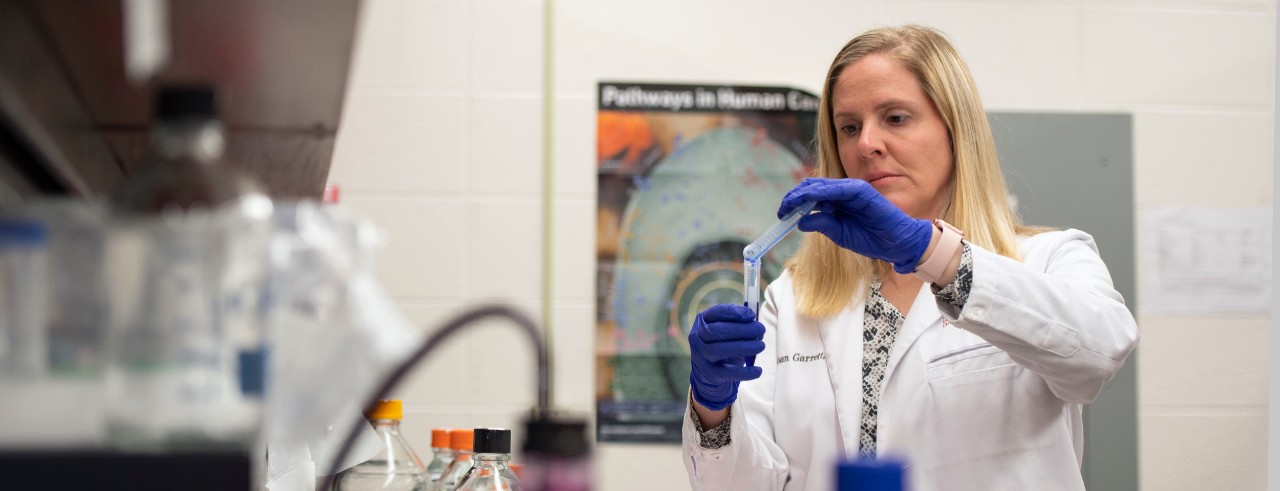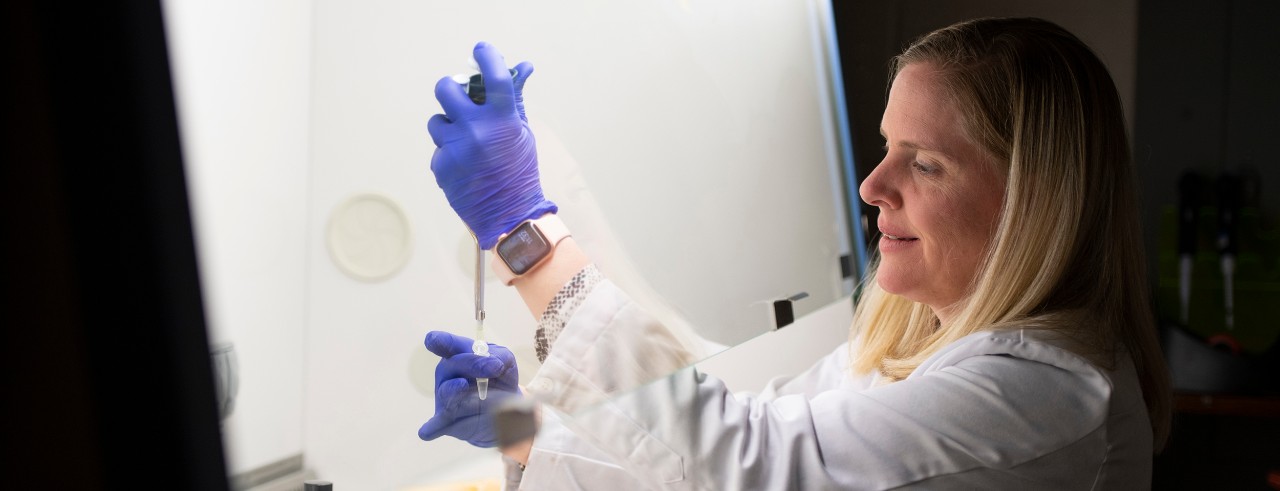
UC researcher studies potential target for cancer
Pharmacy faculty member receives American Cancer Society grant to study breast cancer biomarker
There are innumerable intricacies to the development of cancer, including breast cancer which is the second leading cause of cancer death for women.
One protein known as HER2, which can cause a more aggressive cancer, has already been a target for research and treatment in breast cancer. Now a different target — another protein, HER3 — is emerging as a potential crucial biomarker in some of these cases.
And Joan Garrett, PhD, assistant professor of pharmaceutical sciences at the University of Cincinnati's James L. Winkle College of Pharmacy, hopes to learn more about HER3 and its role in breast cancer development.
“Our research is focused on understanding if mutations of a protein called HER3 are involved in causing breast cancers,” says Garrett, who is also a member of the UC Cancer Center.
Garrett recently received a $792,000 Research Scholar Grant from the American Cancer Society for this work.

Joan Garrett, PhD, pictured here in her lab, is studying a potential new biomarker for breast cancer that could open the door to new targeted treatments. Photo/Colleen Kelley/UC Creative + Brand
“Our lab hopes to determine whether variants of HER3 are in the driver's seat for causing breast cancer or if they are simply passengers along for the ride,” she says. “We hope to find the driver variants of HER3 causing breast cancer and identify the most effective treatment options for women who have these variants.”
Garrett, who came to the UC in 2015, has always focused on better understanding the pathways and signals that lead to cancer development.
“I am personally committed to discovering those intricate and important interactions that occur in our bodies and cells with the goal to stop cancer in its tracks and impact the lives of cancer patients everywhere,” she says. “Our lab’s work covers the gamut of basic cancer biology through translational studies and involvement with clinical trials.
“We hope that results from this study provide more clues into targeting and treating a cancer that affects one in eight women in the U.S.”
Featured image of Joan Garrett in a lab at the Winkle College of Pharmacy/Colleen Kelley/UC Creative + Brand
Next Lives Here
The University of Cincinnati is classified as a Research 1 institution by the Carnegie Commission and is ranked in the National Science Foundation's Top-35 public research universities. UC's graduate students and faculty investigate problems and innovate solutions with real-world impact. Next Lives Here.
Related Stories
'Paradigm-shifting' study confirms effectiveness of long-acting HIV treatment
February 26, 2026
The results of a clinical trial involving the University of Cincinnati, recently published in The New England Journal of Medicine, show people failing HIV treatments with oral medications were able to be treated successfully using injections.
How do horses whinny?
February 26, 2026
A horse makes the low-pitched part of its whinny by vibrating its vocal cords — similar to how humans speak and sing — and the high-pitched part by whistling with its voice box, according to a new paper published in the journal Current Biology and featured in Smithsonian magazine.
UC receives grant for AI use in medical education
February 26, 2026
The University of Cincinnati is turning to artificial intelligence to help solve a problem in medical training. The College of Medicine was awarded a grant valued at more than $1 million to use AI in advanced physician training through personalized learning.
